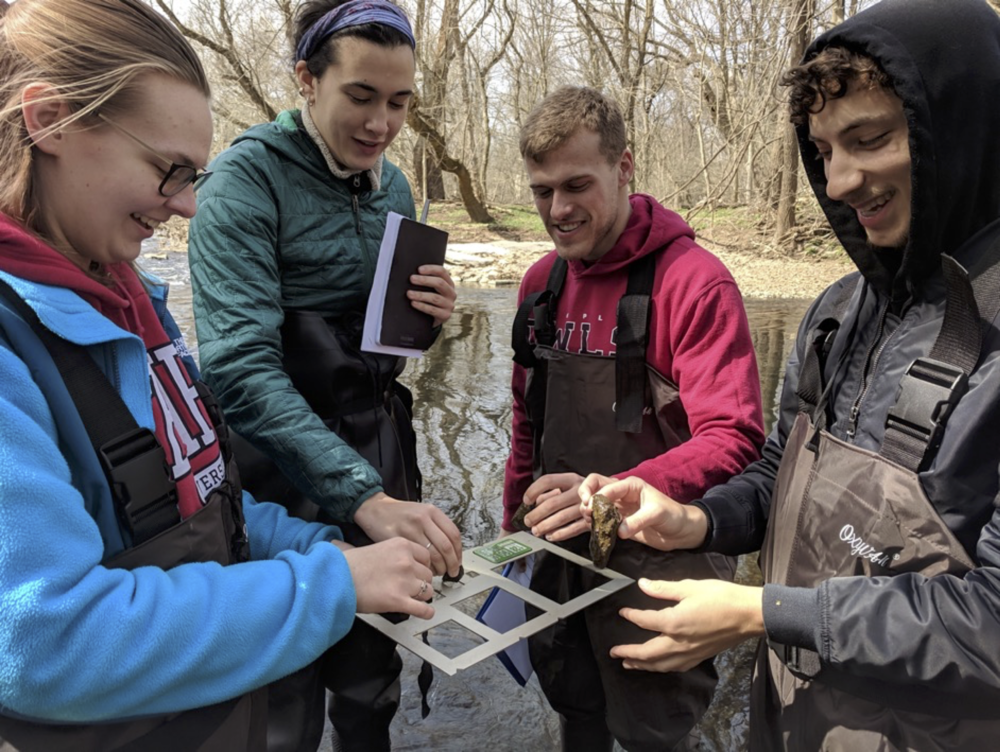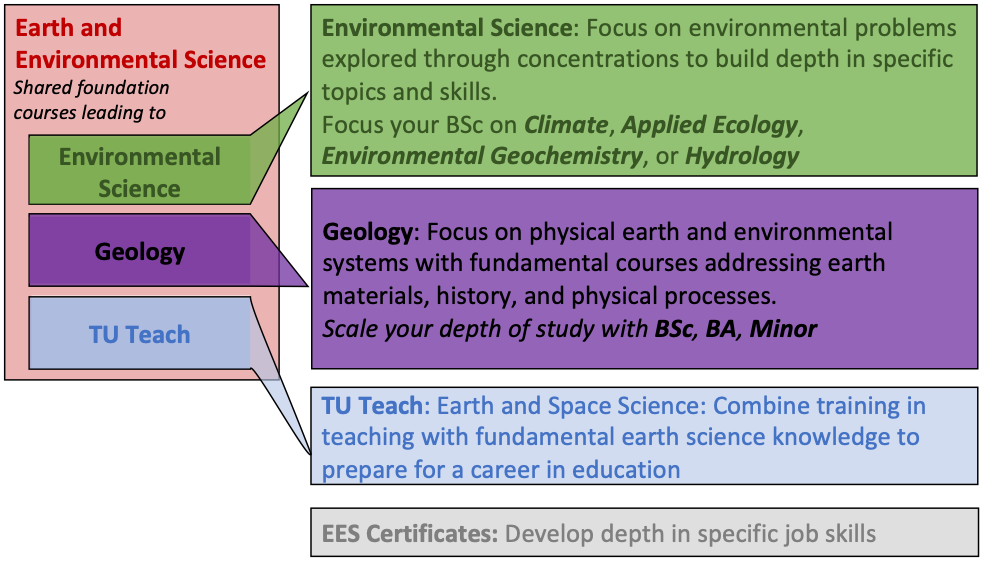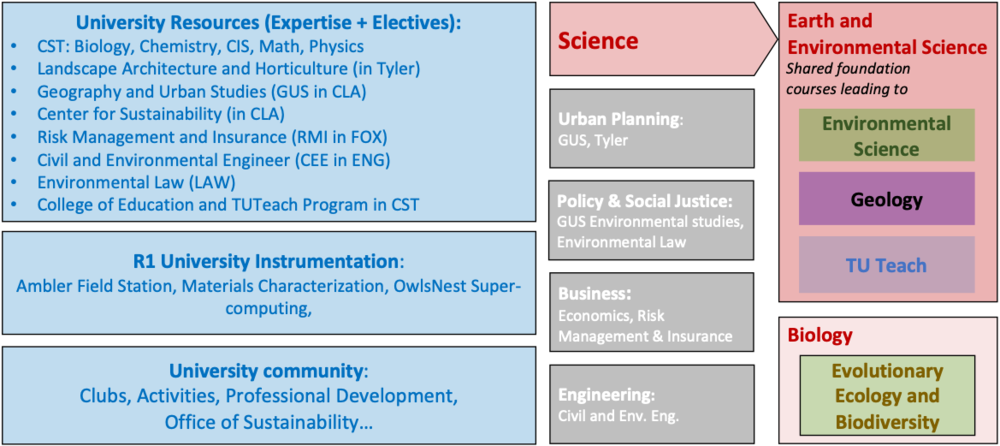

EES offers a variety of programs to help you focus your studies, develop skills, and prepare you for your next stop.
But determining which program is the best match for your goals may not be obvious. To help, EES programs start with common core courses so you can explore and build confidence in your interests, develop fundamental skills, and meet fellow majors. These experiences will help you choose a program.
To start, the introductory seminar “Fragile Future to Sustainable Society” brings together new majors with researchers exploring the grand challenges in earth and environmental science.
Each week a different professor will share their research, what their graduate and undergraduate students are doing, and help you learn a little bit more about earth and environmental science. One week, a panel of undergraduate and graduate student researchers and leaders their perspective, their work in EES, and plans for the future.
EES is the ultimate applied science. We offer training so that you can do the science in the way that suits you: in the field, in the lab, or analyzing big data on a computer. From basic research to application.
You will have lectures to introduce and discuss new concepts, lab and field experiences to practice your knowledge and hone your skills, and courses that use modern computational tools and vast new observational data sets to study the earth. These experiences give you a hard science background, from which you can explore applications to business, society, and regulatory frameworks.
Field experiences can help you develop skills for your career, or if you work in the office or lab ensure you communicate effectively with your colleagues. Field trips are incorporated into many classes. Overnight, multi-class field trips allow you to see the same area from the prism of different coursework and include bbq and social time. Students can participate in dedicated immersive experiences over the summer; past students have explored greater Pennsylvania, the western US, Ireland, the Himalaya, and South Africa among others (find a program that meets your goals). And new modular courses during summer or the academic year offer experiences that span traditional mapping to designing and deploying environmental sensors.
Your journey begins with SCTC 1001, the First Year Seminar to help you understand our College of Science and Technology, how the university works and its resources, and how to be successful in your studies.
CST Advising and EES faculty who act as program-specific advisors will guide and support students through their programs to successful graduation.
Our department hosts a free weekly seminar where speakers from other Universities, our graduate students, and our alumni out in the workforce share their experience and the results of their work.
Gather in our departmental shared spaces to work collaboratively with other EES students on coursework.
Experience is an essential step in developing your career and the active research in our laboratories provides a door to test and develop your interest and skill. We scaffold our experiences which may start with informally assisting a graduate student or volunteering in a laboratory and then formal enrollment in independent study or being hired as a student worker. The College of Science and Technology helps fund and pay undergraduate researchers through the Undergraduate Research Program (URP) that pairs students and faculty who have shared interests across the faculty of the college.
Undergraduate and graduate students doing research in our labs present their findings at venues including the Symposium for Undergraduate Research and Creativity and regional and national professional meetings.
The Geological Society of Temple University, a.k.a. GeoClub is a student led organization that holds social events, hikes, and sustainability and community work events.
As you progress through the program, EES supports professional development with chances to meet alumni, develop career-specific resumes, network to internships and jobs through a dedicated EES Connections portal where we post opportunities shared by our network. The College of Science and Technology (CST) (as well as the College of Engineering, Fox School of Business, and others) host related job fairs. CST offers the opportunity to be paired with a mentor in your chosen field through the Owl-to-Owl mentoring program. Our small course size means you will get to know faculty very well and can work with them to discuss opportunities and use their experience and network to launch your career.

Our department provides a home base and community for our students. But as a Research-1 (R1) institution our resources are extensive and many other faculty and departments are engaged in understanding our earth and shaping a sustainable society. In many cases, these connections are reinforced by active collaborations on funded research with opportunities for student participation:
- Learn about environmental implications for business
- Learn about impacts on social and environmental justice
- Learn about sustainable design
- Explore broad resources in CST, CLA, Tyler, and Engineering
- Access cutting edge instrumentation and participate in research
Get to work with the Office of Sustainability to promote environmental stewardship through action in the Philadelphia and Campus community.

